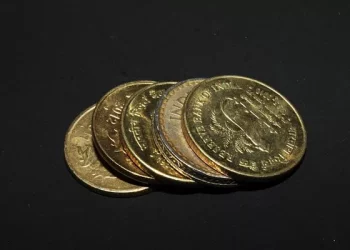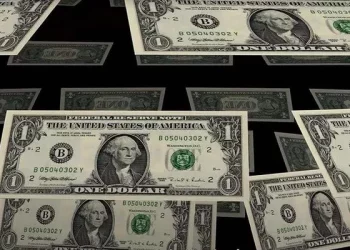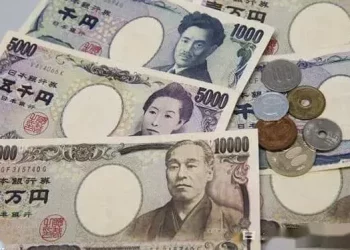In the realm of international finance, exchange rates play a pivotal role in determining the value of currencies relative to one another. For individuals and businesses engaged in global transactions, keeping abreast of these rates is essential for making informed decisions. Among the multitude of currency pairs, the Japanese yen (JPY) and the British pound sterling (GBP) stand out as significant players in the forex market. In this article, we delve into the current exchange rate dynamics between the yen and the pound, specifically focusing on the value of 20000 yen in GBP.
Understanding Exchange Rates
Before delving into the specifics of the exchange rate between the yen and the pound, it’s crucial to grasp the fundamental concept of exchange rates. An exchange rate represents the value of one currency in terms of another. It essentially dictates how much of one currency you can acquire with a certain amount of another currency.
Exchange rates are influenced by a myriad of factors, including economic indicators, geopolitical events, interest rates, and market sentiment. Central banks and monetary authorities also play a significant role in shaping exchange rate policies through interventions in currency markets.
Factors Influencing the Yen-GBP Exchange Rate
The exchange rate between the Japanese yen and the British pound is subject to a variety of factors unique to each currency and their respective economies.
1. Economic Performance: The relative economic performance of Japan and the United Kingdom has a direct impact on their currencies. Strong economic indicators such as GDP growth, employment figures, and inflation rates can bolster a currency’s value.
2. Monetary Policy: Central banks, namely the Bank of Japan (BOJ) and the Bank of England (BoE), implement monetary policies that influence interest rates and money supply. Divergence in monetary policy stances between the two central banks can lead to fluctuations in the yen-pound exchange rate.
3. Trade Balance: The balance of trade between Japan and the UK, including exports and imports, affects the demand for each other’s currencies. A trade surplus in Japan or a deficit in the UK may lead to increased demand for the yen and depreciation of the pound, and vice versa.
4. Political Stability: Political stability and geopolitical developments can impact investor confidence and currency values. Uncertainty or instability in either Japan or the UK may lead to currency volatility.
5. Market Sentiment: Investor sentiment and market speculation also play a significant role in short-term fluctuations in exchange rates. News events, economic reports, and global market trends can influence trader perceptions and trading activity.
Current Exchange Rate: 20000 Yen to GBP
As of the latest data available, the exchange rate between the Japanese yen and the British pound stands at 0.0052. Therefore, converting 20000 yen to GBP yields 103.46 GBP. It’s important to note that exchange rates are subject to fluctuations and may vary slightly depending on the source and time of conversion.
Historical Perspective
To gain a deeper understanding of the yen-pound exchange rate, it’s insightful to examine historical trends and significant events that have shaped the currencies’ performance.
Over the past decade, the yen has exhibited periods of strength and weakness against the pound, reflecting shifts in economic conditions and monetary policies. In times of global economic uncertainty, such as the aftermath of the 2008 financial crisis, the yen has often been perceived as a safe-haven currency, leading to appreciation against the pound and other major currencies.
Conversely, during periods of economic expansion and risk appetite, the pound may outperform the yen as investors seek higher yields and riskier assets. Events such as Brexit have also had a profound impact on the pound’s value, leading to significant volatility in the yen-pound exchange rate.
See Also:Current YEN Exchange Rate: What Is 5000 Japanese Yen to USD?
Forecast and Outlook
Predicting future exchange rate movements with certainty is inherently challenging due to the complex interplay of factors influencing currency markets. However, analysts and economists often provide forecasts and insights based on current trends and economic indicators.
For the yen-pound exchange rate, factors such as the trajectory of economic recovery from the COVID-19 pandemic, central bank policies, and geopolitical developments will continue to influence exchange rate dynamics in the near term. Additionally, any developments related to trade agreements, monetary stimulus measures, or geopolitical tensions could contribute to volatility in the yen-pound exchange rate.
Conclusion
In conclusion, the exchange rate between the Japanese yen and the British pound is a critical aspect of global finance, impacting trade, investment, and economic stability. Understanding the factors influencing this exchange rate is essential for individuals and businesses engaged in international transactions.
As of the latest data available, the exchange rate stands at 0.0052, meaning that 20000 yen is equivalent to 103.46 GBP. However, it’s important to monitor market developments and stay informed about economic trends to navigate currency fluctuations effectively. By staying attuned to the dynamics of the yen-pound exchange rate and its underlying drivers, market participants can make well-informed decisions in the ever-evolving landscape of international finance.
Related Topics:
Current Yen Exchange Rate: What Is 3000 Yen to USD?
Current Yen Exchange Rate: What Is 6000 Yen to USD?
Current Yen Exchange Rate: What Is 50,000 JPY to GBP?

























